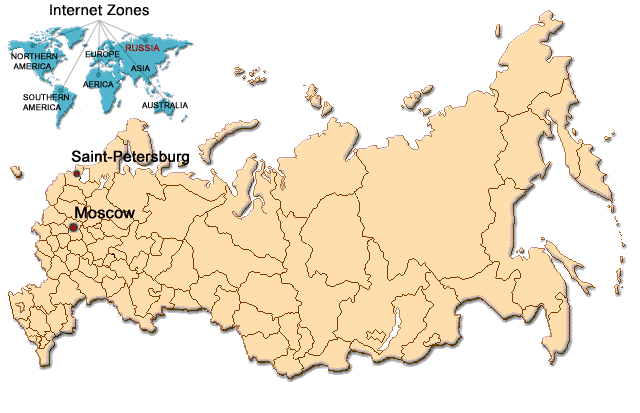IT around the world: Russia
In the first of an on-going series examining IT markets around the globe, we look at whether investing in Russia is worth the risk – and how to go about it the right way.

When Russian tech hits the news, it's rarely a good thing for them or whoever is on the receiving end.
This month, a conflict between the giant nation and southern neighbour Georgia lead to complaints on both sides of hacking attacks as if guns and missiles weren't enough, the warring parties also seemed to be defacing each other's websites and launching botnet attacks. This isn't new for Russia, as the country was previously accused of online attacks after a row with former Soviet state Estonia.
Russia is also often seen as a leader in malware creation, with talk of organised crime rings getting technical degrees to more efficiently steal cash.
Such a reputation does not build confidence when it comes to investment. But ignoring the up-and-coming IT sector in the volatile country might be more of a risk from a business standpoint, at least than investing in it.
Why now?
With Vladimir Putin (sort of) stepping aside, now could be a good time for tech in Russia. Back before he was busy ordering troops around and planning nuclear attacks on Poland, the new Russian president Dmitry Medvedev has said that the IT sector was the fastest growing part of his country's economy. It grew 17.3 per cent in 2006 to about $14 billion, according to statistics from the Russian government, and makes up about 4.5 per cent of that emerging market's GDP.
Despite the military headlines and Soviet past, the country has convinced some - over the past two decades and more recently - to invest in setting up research facilities there. Last year, HP opened up R&D centres in the country, while Cisco last month invested $60 million in a venture capital fund for Russian startups. At the time, Paul Mountford, president of emerging markets for Cisco, said: "The growing number of start-ups originating from the region is reflective of the growing importance of the technology sector to Russia's continued socio-economic development and competitiveness."
Get the ITPro. daily newsletter
Receive our latest news, industry updates, featured resources and more. Sign up today to receive our FREE report on AI cyber crime & security - newly updated for 2024.
But it's not all about foreign companies. This autumn will see the IPO of Russian website Yandex, which is expected to raise some $2 billion, potentially making it the biggest of the year around the world.
The government is already a big source of IT spending, worth about 17 per cent of the market - second only to consumers, according to IDC. But that could be set to increase to an even bigger share. Under Vladimir Putin, Russia attempted to computerise government documents, but that project largely failed. Medvedev is set to retry the programme, and thought its success is far from ensured, Medvedev is sending signals he's much more tech friendly than his predecessor. He's even warned his own officials to get with it: "An official who does not have elementary computer skills cannot work effectively, that means he has to look for another job," Medvedev said. "Learn or leave!"
The market
Overall, Russia's economy is much healthier than it was last decade. In the years to 2000, it averaged 1.6 per cent GDP growth. Last year, it hit 7.5 per cent. According to a report by analysts PMR, the tech sector saw growth in 2007 of 18 per cent, at a worth of $16 billion. A report by IDC predicted growth of 22 per cent for 2006.
The more mature side of the technology market is - unsurprisingly - in the west. The country's business centre is generally considered to be Moscow, while St Petersburg is the focal point for IT research and development.
The country's strongest point of IT growth is software and we're not talking the kind of programming that steals your banking details. Russia is the software leader in Eastern Europe, with about a fifth of the market. Despite the fame of home-grown talent Kaspersky, security software makes up just two per cent of that, while ERP is worth about 19 per cent, a report from research firm Gartner has said.
In January, Gartner predicted that Russia's software growth would continue through 2011, after growing at as much as 24 per cent in 2006. It's been driven by a decrease in pirated software as well as more businesses turning to tech to boost growth.
Indeed, the reduction in piracy makes Russia an interesting market, according to IDC analyst Robert Farish. "In software, the situation is very interesting, with an extremely high growth rate year-on-year," he told IT PRO, adding it's "driven by compliance and much more rigorous enforcement of laws against software piracy."




